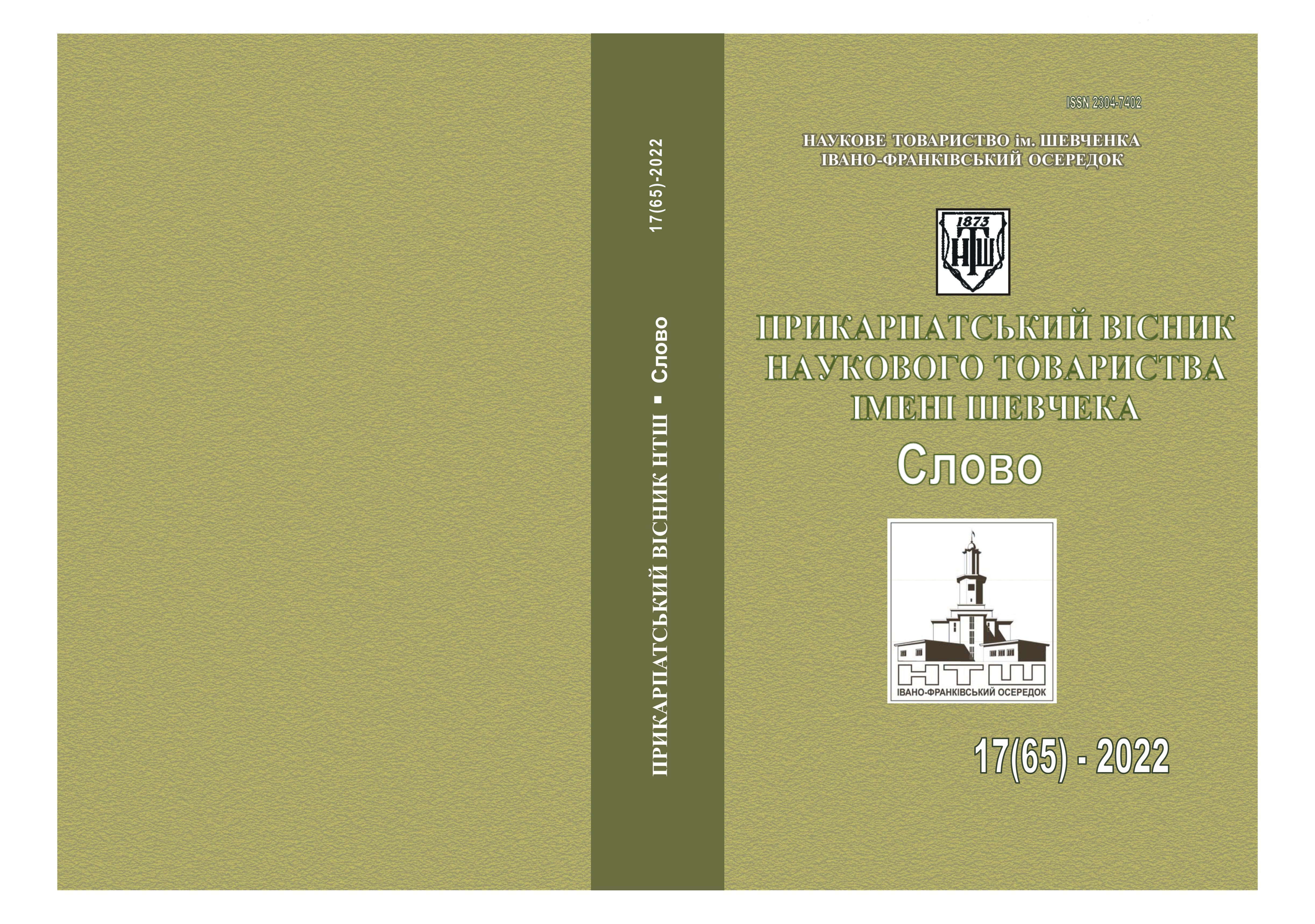ДЕВІАЦІЇ СУЧАСНОГО СУСПІЛЬНОГО МОВЛЕННЯ: ОБСЦЕННА ЛЕКСИКА (НА МАТЕРІАЛІ БЛОГІВ НА «ЦЕНЗОР.НЕТ»)
DOI:
https://doi.org/10.31471/2304-7402-2022-17(65)-34-46Ключові слова:
суспільне мовлення, мовна девіація, лексема, обсценна лексика, мовна особистість.Анотація
Мета. Стаття присвячена дослідженню особливостей сучасного українського суспільного мовлення на матеріалі текстів блогерів інтернет-видання «Цензор.нет». Об’єктом аналізу є девіації у публіцистичних текстах, зокрема зумовленість та особливості використання
обсценної лексики. Традиційно мовні девіації розглядають як комунікативну невдачу чи помилку. У праці визначено новий аспект інтерпретації девіацій як засобу досягнення комунікативної мети, реалізації інтенції адресанта, розкриття змісту та емоційно-оцінного спрямування дискурсу. Обґрунтовано підстави використання обсценної лексики в публічному мовленні, оцінено її доречність, функціональні межі та етнічні особливості вживання. Визначено перспективи та завдання розвитку українського суспільного публічного мовлення.
Дослідницька методика. Ключовим методом дослідження є описовий. Водночас використано порівняльно-типологічний аналіз денотативно-конотативного, емоційно-оцінного, культурно-етичного значення
обсценних лексем та їхнього функціонального статусу. Контекстуальний аналіз дозволив встановити тло та зумовленість функціонально-семантичного навантаження умисних девіацій як текстотвірних засобів.
Результати. Дослідження мови блогерів виявило, що мовні девіації є типовою ознакою текстів сучасного медіапростору. Встановлено, що частина девіацій є наслідком динамічности інформаційного поля, зумовлена лакунами у формуванні мовної особистости, а також низьким рівнем вимог до мовної культури. З іншого боку, частина мовних, перш за все лексичних, девіацій є свідомим вибором авторів, зокрема використання обсценних слів. Вказано на рівень стилістичної маркованости обсценної лексики, яку автори використовують прямо, евфемізуючи чи представляючи її вже як жаргонно-сленгову. Визначено доречність використання девіантної лексики з погляду перспективи розвитку українського суспільного мовлення.
Наукова новизна. Обґрунтовано авторську концепцію лексичних девіацій як засобу досягнення комунікативної мети, запропоновано модель опису обсценної лексики у суспільному мовленні на основі цілісного аналізу тексту, його комунікативно-прагматичних особливостей, зумовлености появи мовних девіацій.
Практичне значення. Матеріал дослідження може слугувати для опрацювання стилістично маркованих компонентів авторського дискурсу в межах курсу лінгвоаналізу тексту. Висновки та узагальнення сприятимуть опрацюванню засад розвитку і суспільного мовлення, і української мовної особистості.
Посилання
Барчук В. Спортивний репортаж як дзеркало суспільного мовлення (на матеріалі футбольних телетрансляцій). Рідне слово в етнокультурному вимірі. Зб. наук. праць. Дрогобицький державний педагогічний університет імені Івана Франка. Дрогобич: Посвіт, 2015. С. 17-25.
Бацевич Ф.С. Основи комунікативної лінгвістики. Київ: Академія. 2004.
Домрачева І.Р. Мовні девіації в українських засобах масової інформації. Вісник Донецького національного університету. Серія Б. Гуманітарні науки. № 1-2. 2015. С. 97-103.
Дяків Христина. Комунікативна девіатологія в Україні: огляд проблематики. Науковий вісник Східноєвропейського національного університету імені Лесі Українки. Вип.6, 2016. С. 168-174.
Єльнікова Н.І. Теоретичні засади вивчення девіантної комунікації. Вчені записки ТНУ імені В. І. Вернадського. Серія: Філологія. Журналістика. Том 32 (71). № 4, Ч. 1. 2021. С. 18-23.
Макарець Ю.С. До питання про девіативність текстів українських інтернет-ЗМІ (на прикладі інтернет-видання „Українська правда”). Науковий вісник Міжнародного гуманітарного університету. Сер.: Філологія. 2018. №32. Т.3. С. 72-76.
Мішеніна Т.М. Мовні девіації інтерферального характеру в системі сучасної української мови. Криворізький державний педагогічний університет. Філологічні студії. Вип. 11. 2014.С. 108-122.
Ставицька Леся. Українська мова без табу. Словник нецензурної лексики та її відповідників. Київ: Критика. 2008.
Горковенко Володимир. https://censor.net/ua/blogs/3381412/pro_bltvo_ya-ke_ne_na_chasi
Грінченко Борис.Словарь української мови. Тт. 1-4. Київ: Наукова думка. 1996.
Ратушний Роман https://censor.net/ua/r3347969
Юрович Дана https://censor.net/ua/blogs/3378690/zamah_na_prodaj
Юрченко Олена https://osvitoria.media/experience/lyuta-ukrayinska-lajka-chym-zaminyty-rosijski-matyuky/
goroh.pp.ua
myslovo.com

